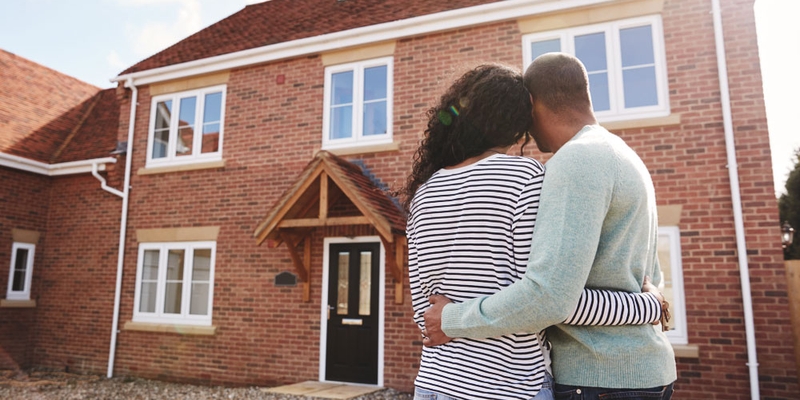
If you are not redirected within 30 seconds, please click here to continue.
Samedi: 10h – 16h HAE

If you are not redirected within 30 seconds, please click here to continue.
If you are not redirected within 30 seconds, please click here to continue.
Home Prices Soar but Are Still “Affordable”… Sort Of

Table of Contents
The average price for a house in Canada rose to $621,525 in January, according to new data from the Canadian Real Estate Association (CREA). That’s nearly a 23% jump from just one year ago.
On the surface, this screams that homebuying is becoming wildly unaffordable—for many.
That’s especially true for buyers who were just barely able to get a mortgage approval to begin with, particularly in more competitive markets.
But at least one indicator of affordability appears to actually be improving at the moment.
“…house prices tend to be responsive to changes in interest rates, but with a lag. That process is happening now,” Will Dunning, Chief Economist at Mortgage Professionals Canada, wrote in a recent report.
“The result, to this stage, is that affordability has actually improved (because prices aren’t completely in-sync with rates).”
Say What? (A Technical Look at How Affordability is Improving…)
In his calculations, Dunning analyzed the Greater Toronto Area (GTA) housing market specifically, looking at CREA’s composite price index against wage data and typical “special offer” mortgage rates available to new buyers.
His result is illustrated in the mortgage cost index chart below. It shows affordability at its best level since 2017.

“In terms of the monthly payments, affordability is still worse than before 2017, but it has improved,” Dunning argues, despite the mortgage stress test being stuck at a “ridiculous” rate of 4.79%.
A key reason for this affordability improvement is interest rates. When rates are this low, the amount of principal being repaid each month is far higher. Dunning says that amount is currently about two-thirds of a typical mortgage payment, with the actual interest cost being just one-third of each payment.
In this sense, one could view homeownership in an environment of 1.50% +/- interest rates as a powerful form of saving. Not only are you building equity with each and every payment, but you’re also enjoying home price appreciation over the long-run, appreciation that has beat inflation for decades.
“Calculated on that basis, affordability in the GTA is currently extremely good,” he adds. “In a time when a lot of us are thinking about our housing situations, it is not surprising that huge numbers of us want to buy.”
Sidebar: The past is no indication of the next 10 years in real estate. Anyone who buys a home at today’s lofty valuations should prepare for the possibility of a correction, possibly as soon as 2022 (not a prediction). The point being, despite potential appreciation and the forced savings of mortgage payments, if you’re going to buy a principal residence, be safe and plan to hold for the long-run.
Get money-saving tips in your inbox.
Stay on top of personal finance tips from our money experts!








